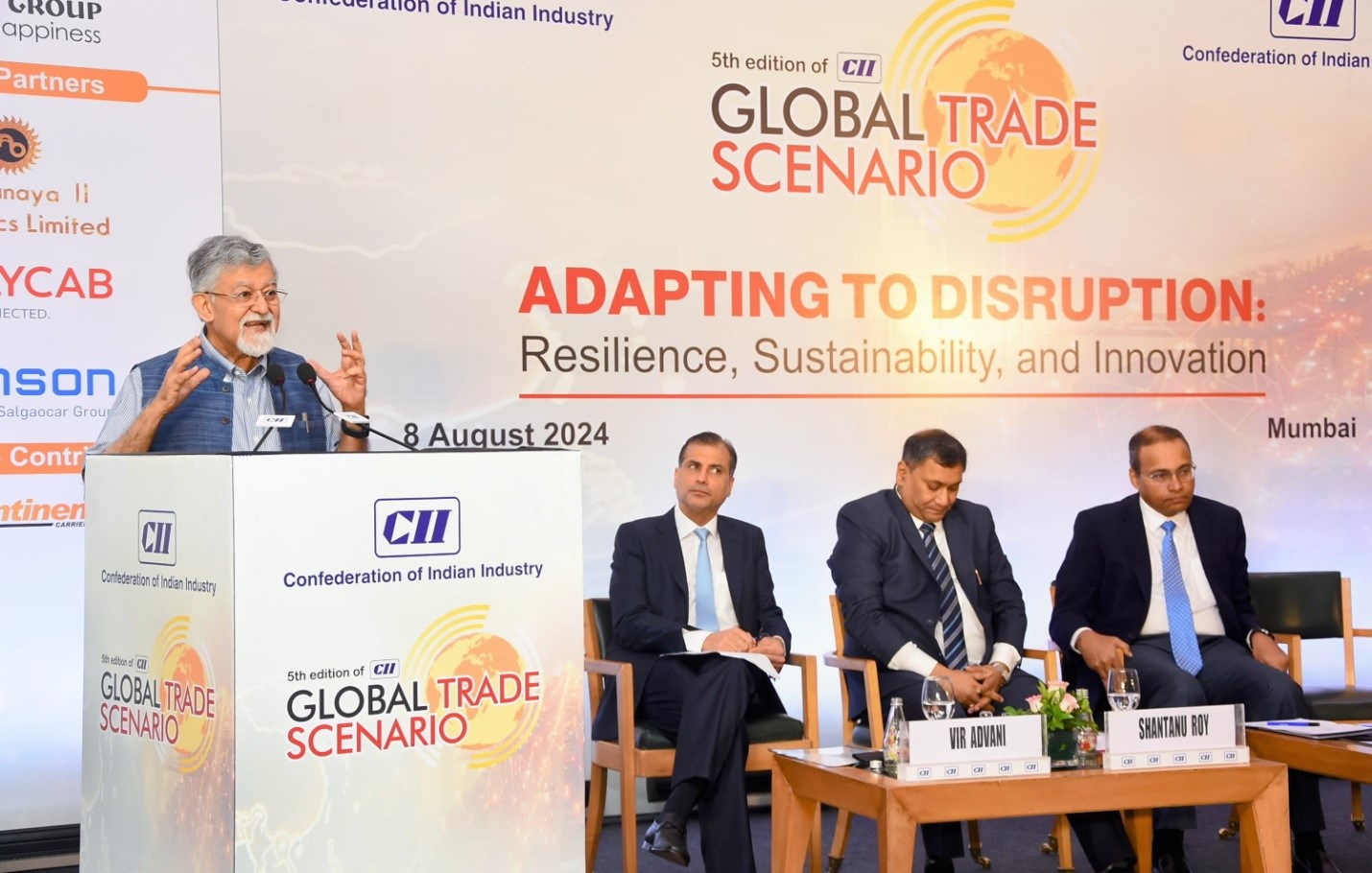Baby Chakraborty, KalimNews, December 5, 2024, Kolkata: India stands at the threshold of a unique opportunity to expand its global market share, particularly in the textile industry, as the international trade landscape faces turbulence. A senior member of the NITI Aayog expressed this view during the quarterly report release ceremony, where global shifts, including U.S. President-elect Donald Trump’s potential tariff impositions and political unrest in neighboring Bangladesh, were discussed.
In a statement likely to reshape India’s export strategies, NITI Aayog officials reflected on Trump’s warning regarding the imposition of tariffs on China and other countries. While the proposed tariffs may disrupt global trade flows, they also present an opportunity for India to ramp up its exports and strengthen its position in the international market.
“Trump’s threats to impose tariffs will undoubtedly have significant consequences on world trade,” said the CEO of NITI Aayog. “However, for India, this could be a blessing in disguise, providing an opening to diversify and increase exports, particularly to markets affected by global trade shifts.”
In addition to the trade uncertainties stemming from U.S. policies, NITI Aayog members highlighted the deteriorating political and economic situation in Bangladesh as another potential avenue for India to gain a competitive edge. The country has faced growing internal strife, including protests, movements, and ongoing violence against the Hindu minority, which have disrupted the local textile industry—one of Bangladesh’s key economic pillars.
“Bangladesh’s textile industry, which plays a crucial role in its economy, has suffered due to the ongoing political unrest,” said Prabhakar Shau, Senior Program Director at NITI Aayog. “This presents India with a strategic opportunity to increase its market share by enhancing exports to Bangladesh, particularly in the textile sector. With the industry facing stagnation, India can benefit significantly by stepping in to fill the gap.”
Shau emphasized that India has the infrastructure, expertise, and production capacity to meet the demand that Bangladesh is no longer able to fulfill efficiently due to its internal challenges. As a result, India could emerge as the preferred supplier for textile goods in the region.
Moreover, a senior NITI Aayog official remarked that the current political and economic climate in Bangladesh does not create a favorable environment for foreign investments, making it even more crucial for India to capitalize on this window of opportunity. “Countries are increasingly reluctant to invest in Bangladesh due to the instability, which further complicates trade relations,” the official added.
In light of these developments, NITI Aayog officials have urged the Indian government to focus on bolstering exports, particularly in sectors where global shifts present clear advantages. The textile industry, in particular, is seen as a prime sector for this strategic push, given its significance both regionally and globally.
With global trade uncertainties mounting, India’s policymakers see this as a critical juncture to strengthen the nation’s position on the world stage, leveraging both international political dynamics and regional economic disruptions to secure long-term growth.

